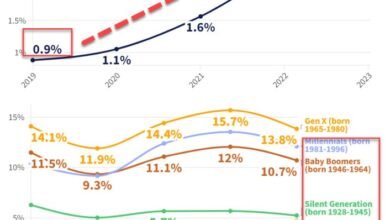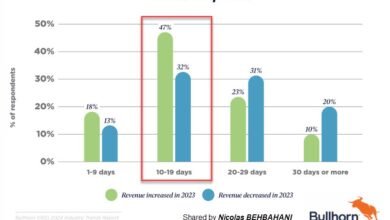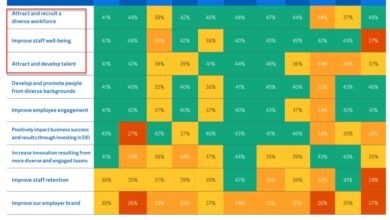
Source | godeskless.com
Enterprises need to change with the times, or they will perish.
Companies have traditionally thought of phone calls as the best avenue to provide customer service, address problems and issues, or promote new products and services. However, research reveals that millennials and Gen-Z really don’t like answering the phone. If they are required to pick up the phone, they are likely to regard the business as dated and creating a burden.
Millennials and Gen-Z represent the future of consumer and user habits. And the evidence shows that selling to millennials and Gen-Z with a traditional CRM approach is problematic. Insisting on such an outmoded system will render your products and services obsolete in their eyes.
Take a look at Blockbuster, who sealed their own fate by staying with an antiquated business model and refusing to see the opportunity that Netflix once offered them. Now, Netflix just earned over $6.14 billion in the second quarter of 2020, while Blockbuster has been reduced to one local store in Bend, Oregon.
How can companies adapt to new customer service trends like this? Through modern messaging platforms that are attuned to the times.
Millennials and Gen-Z: The Post-Phone Call Generations
Millennials (born between 1981 and 1996) and Generation Z (born between 1996 and 2015) find phone calls “too time-consuming”. According to research from BankMyCell, 75% of the current generation list this as the top reason they avoid calls.

Millennials and Gen-Z don’t like the “small talk” aspect of phone calls, including niceties and greetings. They prefer faster, more direct communication, with straightforward results. A quick text, they think, would have the same effect in an arguably shorter time. In a business transaction setting, this will only trigger impatience and misunderstanding with your customers. By the end of the call, they will have likely Google-searched your competitor as an alternative to your services.
Aside from being too time-consuming, millennials and Gen-Z also find calls rude and anxiety-inducing. 81% of respondents admit that they often experience anxiety when talking to someone on the phone. Most, if not all, even need to work up the courage to press the Call button. When shooting a text or an email, a person can compose their thoughts and plan out first what they want to say. Calls require spontaneity and a little bit of improvisation; something that the recent generations seem to find nerve-wracking.
Calling without even texting or emailing first is also deemed inconsiderate by today’s youth. For them, it means the caller is imposing on their time, or disrupting their schedule. Your CRM personnel will most likely receive the cold shoulder (or a hurried “goodbye”) when your consumers realize they need to wait for five to ten minutes before they get what they need. Studies also reveal that members of Generation Z are even less likely to want to be “always reachable” by phone call than their millennial counterparts.
John Brandon from Inc. Magazine puts it more succinctly: “Millennials already know the benefits of digital communication better than some of us. They want results, not a lengthy discussion.”
How Should Companies Adapt?
Recent customer service trends reveal how times have changed. To resonate with an audience like the current generations, you have to reach out their way.
Research from the Center for Generational Kinetics has found that millennials’ preferred mode of communication are texting apps.
This is directly followed by emails, with high importance given to subject lines, and social media (e.g Twitter, Instagram, TikTok).
A recent survey backs this up, revealing that 77% of respondents use the native texting apps on their phones. Email, on the other hand, is still king of marketing, with roughly 80% of marketers reporting an email engagement increase over the past year. Even healthcare facilities and practices (an industry that is traditionally very slow to innovate) have started to utilize texting as their main mode of communication with their patients! What does that say about businesses that still rely on middlemen and phone calls?
Meanwhile, social media took a slightly different, but still quite similar, route. Apps like Instagram, Twitter, Snapchat, and TikTok deliver what we call a “consumerized experience”. This mindset is mainly composed of three actions: capture, describe/comment, and share. And it works. Based on a new report, internet influencers and other followed personalities on social media have a massive impact on millennials and Gen-Z consumers’ lifestyles and purchase decisions.
The point is that companies need to provide their younger consumers with modern messaging platforms; one where users don’t have to phone call centers to get what they need. If your business model does not extend a similar experience that social media and other modern apps provide for them, you are going to be on the last page of their smartphones. Eventually, they’ll find a better service or product than yours, and you will become obsolete.
To keep your boat from sinking and your customers from jumping ship, the experience you provide must evolve. Start by adopting modern messaging platforms for your deskless teams and untethering your customer experience.
Untether Your Customer Experience
Millennials and Gen-Z are the current and future consumers. Companies need to adjust the way they do things, if they want to stay competitive in the years ahead.
Companies such as Uber, AirBnB, and Doordash have become so successful in selling to millennials and Gen-Z by tapping into the mindset of their consumers. Their apps connected the demand directly with the supply, removing the middleman. In the shared economy model that now defines the contemporary consumer experience, there is no dependency on a third-person/party. One simply clicks a button on their app, and the action is done.
There is also full transparency and visibility into the user’s request. For example, the user can see the Uber vehicle as it comes through the GPS, and even inform the Uber driver immediately of changes.
Adopting modern messaging platforms and technology like Uber and these other companies allows businesses to:
- Untether their customer experience from a desk-based person (CRM), giving more power to consumers to engage directly with the field workforce, and;
- Provide transparency and rapid access to information for both customers and deskless workers.
Using modern messaging platforms to deliver services increase trust and loyalty from both consumers and employees. Moreover, it decreases employee churn and stress, ensuring a smooth workflow and high satisfaction. See in action how your company can provide this for your deskless workers and consumers. Start your GoDeskless trial here.
Republished with permission and originally published at godeskless.com






